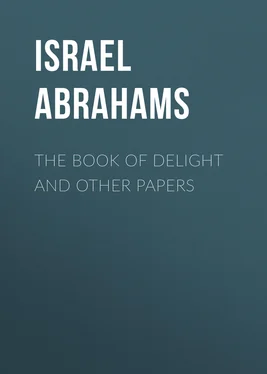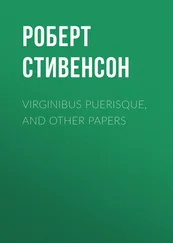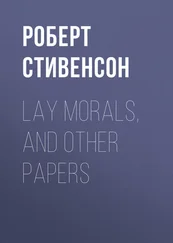Israel Abrahams - The Book of Delight and Other Papers
Здесь есть возможность читать онлайн «Israel Abrahams - The Book of Delight and Other Papers» — ознакомительный отрывок электронной книги совершенно бесплатно, а после прочтения отрывка купить полную версию. В некоторых случаях можно слушать аудио, скачать через торрент в формате fb2 и присутствует краткое содержание. Жанр: foreign_poetry, Поэзия, foreign_antique, foreign_prose, на английском языке. Описание произведения, (предисловие) а так же отзывы посетителей доступны на портале библиотеки ЛибКат.
- Название:The Book of Delight and Other Papers
- Автор:
- Жанр:
- Год:неизвестен
- ISBN:нет данных
- Рейтинг книги:5 / 5. Голосов: 1
-
Избранное:Добавить в избранное
- Отзывы:
-
Ваша оценка:
- 100
- 1
- 2
- 3
- 4
- 5
The Book of Delight and Other Papers: краткое содержание, описание и аннотация
Предлагаем к чтению аннотацию, описание, краткое содержание или предисловие (зависит от того, что написал сам автор книги «The Book of Delight and Other Papers»). Если вы не нашли необходимую информацию о книге — напишите в комментариях, мы постараемся отыскать её.
The Book of Delight and Other Papers — читать онлайн ознакомительный отрывок
Ниже представлен текст книги, разбитый по страницам. Система сохранения места последней прочитанной страницы, позволяет с удобством читать онлайн бесплатно книгу «The Book of Delight and Other Papers», без необходимости каждый раз заново искать на чём Вы остановились. Поставьте закладку, и сможете в любой момент перейти на страницу, на которой закончили чтение.
Интервал:
Закладка:
Once lay the saint at rest, and glanced upon the nest of a bird within his room. Ah! cruel was his doom! Into his eye there went the sparrow's excrement. Tobiah's sight was gone! He had an only son, whom thus he now addressed: "When business ventures pressed, I passed from clime to clime. Well I recall the time, when long I dwelt in Ind, of wealth full stores to find. But perilous was the road, and entrusted I my load with one of honest fame, Peër Hazeman his name. And now list, beloved son, go out and hire thee one, thy steps forthwith to guide unto my old friend's side. I know his love's full stream, his trust he will redeem; when heareth he my plight, when seeth he thy sight, then will he do the right." The youth found whom he sought, a man by travel taught, the ways of Ind he knew; he knew them through and through, he knew them up and down, as a townsman knows his town. He brought him to his sire, who straightway did inquire, "Knowest thou an Indian spot, a city named Tobot?"—"Full well I know the place, I spent a two years' space in various enterprise; its people all are wise, and honest men and true."—"What must I give to you," asked Tobiah of his guest," to take my son in quest?"—"Of pieces pure of gold, full fifty must be told."—"I'll pay you that with joy; start forth now with my boy." A script the son did write, which Tobiah did indite, and on his son bestow a sign his friend would know. The father kissed his son, "In peace," said he, "get gone; may God my life maintain till thou art come again." The youth and guide to Tobot hied, and reached anon Peër Hazeman. "Why askest thou my name?" Straight the answer came, "Tobiah is my sire, and he doth inquire of thy health and thy household's." Then the letter he unfolds. The contents Peër espies, every doubt flies, he regards the token with no word spoken. "'Tis the son of my friend, who greeting thus doth send. Is it well with him? Say."—"Well, well with him alway."—"Then dwell thou here a while, and hours sweet beguile with the tales which thou wilt tell of him I loved so well."—"Nay, I must forthwith part to soothe my father's heart. I am his only trust, return at once I must." Peër Hazeman agrees the lad to release; gives him all his father's loan, and gifts adds of his own, raiment and two slaves. To music's pleasant staves, the son doth homeward wend. By the shore of the sea went the lad full of glee, and the wind blew a blast, and a fish was upward cast. Then hastened the guide to ope the fish's side, took the liver and the gall, for cure of evil's thrall: liver to give demons flight, gall to restore men's sight. The youth begged his friend these specifics to lend, then went he on his way to where his sick sire lay. Then spake the youth to his father all the truth. "Send not away the guide without pay." The son sought the man, through the city he ran, but the man had disappeared. Said Tobiah, "Be not afeared, 'twas Elijah the seer, whom God sent here to stand by our side, our needs to provide." He bathed both his eyes with the gall of the prize, and his sight was restored by the grace of the Lord.
Then said he to his son, "Now God His grace has shown, dost thou not yearn to do a deed in turn? My niece forthwith wed."—"But her husbands three are dead, each gave up his life as each made her his wife; to her shame and to her sorrow, they survived not to the morrow."—"Nay, a demon is the doer of this harm to every wooer. My son, obey my wish, take the liver of the fish, and burn it in full fume, at the door of her room,'twill give the demon his doom." At his father's command, with his life in his hand, the youth sought the maid, and wedded her unafraid. For long timid hours his prayer Tobiah pours; but the incense was alight, the demon took to flight, and safe was all the night. Long and happily wed, their lives sweetly sped.
Their entertainer tells Joseph and Enan another story of piety connected with the burial of the dead:
THE PARALYTICS TOUCHSTONE OF VIRTUE
Once upon a time there lived a saintly man, whose abode was on the way to the graveyard. Every funeral passed his door, and he would ever rise and join in the procession, and assist those engaged in the burial. In his old age his feet were paralyzed, and he could not leave his bed; the dead passed his doors, and he sighed that he could not rise to display his wonted respect. Then prayed he to the Lord: "O Lord, who givest eyes to the blind and feet to the lame, hear me from the corner of my sorrowful bed. Grant that when a pious man is borne to his grave, I may be able to rise to my feet." An angel's voice in a vision answered him, "Lo, thy prayer is heard." And so, whenever a pious man was buried, he rose and prayed for his soul. On a day, there died one who had grown old in the world's repute, a man of excellent piety, yet the lame man could not rise as his funeral passed. Next day died a quarrelsome fellow of ill fame for his notorious sins, and when his body was carried past the lame man's door, the paralytic was able to stand. Every one was amazed, for hitherto the lame man's rising or resting had been a gauge of the departed's virtue. Two sage men resolved to get to the bottom of the mystery. They interviewed the wife of the fellow who had died second. The wife confirmed the worst account of him, but added: "He had an old father, aged one hundred years, and he honored and served him. Every day he kissed his hand, gave him drink, stripped and dressed him when, from old age, he could not turn himself on his couch; daily he brought ox and lamb bones, from which he drew the marrow, and made dainty foods of it." And the people knew that honoring his father had atoned for his transgressions. Then the two inquisitors went to the house of the pious man, before whom the paralytic had been unable to rise. His widow gave him an excellent character; he was gentle and pious; prayed three times a day, and at midnight rose and went to a special chamber to say his prayers. No one had ever seen the room but himself, as he ever kept the key in his bosom. The two inquisitors opened the door of this chamber, and found a small box hidden in the window-sill; they opened the box, and found in it a golden figure bearing a crucifix. Thus the man had been one of those who do the deeds of Zimri, and expect the reward of Phineas.
TABLE TALK
Joseph and Enan then retire to rest, and their sleep is sweet and long. By strange and devious ways they continue their journey on the morrow, starting at dawn. Again they pass the night at the house of one of Enan's friends, Rabbi Judah, a ripe old sage and hospitable, who welcomes them cordially, feeds them bountifully, gives them spiced dishes, wine of the grape and the pomegranate, and then tells stories and proverbs "from the books of the Arabs."
A man said to a sage, "Thou braggest of thy wisdom, but it came from me." "Yes," replied the sage, "and it forgot its way back."—Who is the worst of men? He who is good in his own esteem.—Said a king to a sage, "Sweet would be a king's reign if it lasted forever." "Had such been your predecessor's lot," replied the wise man, "how would you have reached the throne?"—A man laid a complaint before the king; the latter drove the suppliant out with violence. "I entered with one complaint," sighed the man, "I leave with two."—What is style? Be brief and do not repeat yourself.—The king once visited a nobleman's house, and asked the latter's son, "Whose house is better, your father's or mine?" "My father's," said the boy, "while the king is in it."—A king put on a new robe, which did not become him. "It is not good to wear," said a courtier, "but it is good to put on." The king put the robe on him.—A bore visited a sick man. "What ails thee?" he asked. "Thy presence," said the sufferer.—A man of high lineage abused a wise man of lowly birth. "My lineage is a blot on me," retorted a sage, "thou art a blot on thy lineage."—To another who reviled him for his lack of noble ancestry, he retorted, "Thy noble line ends with thee, with me mine begins."—Diogenes and Dives were attacked by robbers. "Woe is me," said Dives, "if they recognize me." "Woe is me," said Diogenes, "if they do not recognize me."—A philosopher sat by the target at which the archers were shooting. "'Tis the safest spot," said he.—An Arab's brother died. "Why did he die?" one asked. "Because he lived," was the answer.—"What hast thou laid up for the cold weather?" they asked a poor fellow. "Shivering," he answered.—Death is the dread of the rich and the hope of the poor.—Which is the best of the beasts? Woman.—Hide thy virtues as thou hidest thy faults.—A dwarf brought a complaint to his king. "No one," said the king, "would hurt such a pigmy." "But," retorted the dwarf, "my injurer is smaller than I am."—A dolt sat on a stone. "Lo, a blockhead on a block," said the passers-by.—"What prayer make you by night?" they asked a sage. "Fear God by day, and by night you will sleep, not pray."—Rather a wise enemy than a foolish friend.—Not everyone who flees escapes, not everyone who begs has need.—A sage had weak eyes. "Heal them," said they. "To see what?" he rejoined.—A fool quarrelled with a sage. Said the former, "For every word of abuse I hear from thee, I will retort ten." "Nay," replied the other, "for every ten words of abuse I hear from thee, I will not retort one."—An honest man cannot catch a thief.—All things grow with time except grief.—The character of the sent tells the character of the sender.—What is man's best means of concealment? Speech.—"Why walkest thou so slowly?" asked the lad of the greybeard. "My years are a chain to my feet: and thy years are preparing thy chain."—Do not swallow poison because you know an antidote.—The king heard a woman at prayer. "O God," she said, "remove this king from us." "And put a better in his stead," added the eavesdropping monarch.—Take measure for this life as though thou wilt live forever; prepare for the next world as though thou diest to-morrow.—"He will die," said the doctor, but the patient recovered. "You have returned from the other world," said the doctor when he met the man. "Yes," said the latter, "and the doctors have a bad time there. But fear not. Thou art no doctor."—Three things weary: a lamp that will not burn, a messenger that dawdles, a table spread and waiting.
Читать дальшеИнтервал:
Закладка:
Похожие книги на «The Book of Delight and Other Papers»
Представляем Вашему вниманию похожие книги на «The Book of Delight and Other Papers» списком для выбора. Мы отобрали схожую по названию и смыслу литературу в надежде предоставить читателям больше вариантов отыскать новые, интересные, ещё непрочитанные произведения.
Обсуждение, отзывы о книге «The Book of Delight and Other Papers» и просто собственные мнения читателей. Оставьте ваши комментарии, напишите, что Вы думаете о произведении, его смысле или главных героях. Укажите что конкретно понравилось, а что нет, и почему Вы так считаете.











